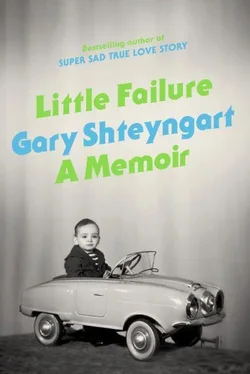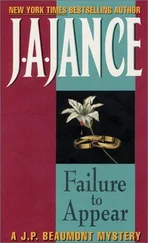“God will see my deed and bless me,” Papa replies magnanimously.
“God will see how stupid you are and never send you anything else!”
“Shut your stinking mouth!”
“Go to the dick!”
“Don’t swear. The child can hear.”
In my bathroom with my Raphael Madonna as the adult world trembles around me: “Santa Maria, Santa Maria, Santa Maria.” And then my memorized list of Roman Forum ruins: “Temple of Saturn, Temple of Vespasian, Temple of Castor and Pollux, Temple of Vesta, Temple of Caesar.”
Two handsome Americans from the CIA come to interview Papa. They want to know about his previous job at the LOMO (Leningrad Optical Mechanical Amalgamation) factory, present-day makers of the hipster cameras used in Lomography, but back in 1978 manufacturers of telescopes and sensitive military technology. Of course, my father has never been anywhere near the sensitive military stuff. He had been known to conduct “disruptive pro-Zionist and anti-Soviet conversations” about Israel and the 1967 Six-Day War, possibly the most glorious six days of his life, until one day his boss called him in and said, “Fuck your mother, Shteyngart, you can’t do anything right! Get out of here!” A stroke of luck to have a father with such a big mouth, for had he become acquainted with the factory’s military technology, we would never have been allowed to leave the Soviet Union.
The enemy spooks leave empty-handed, but one day my father sits me down for a chat. My toys, at the time, in addition to my Mozart candy wrapper and my Madonna, are two clothespins with which we hang our laundry to dry in the Mediterranean heat. One is a red “Tupolev” and the other a blue “Boeing.” Whenever I’m not drooling over the Sistine Chapel, I do my boy’s stuff. I race the two airplanes across the quiet Ostia streets, across the cold sands of the nearby beaches, always letting the Tupolev plane win over the enemy jetliner.
The skies over Ostia are sunny and the May air is brisk, the perfect atmosphere for a U.S.-USSR jet race.
My father and I are sitting on the shabby bedspread in our apartment. I prepare my Boeing and Tupolev clothespins. And he tells me what he knows. It was all a lie. Communism, Latin Lenin, the Komsomol youth league, the Bolsheviks, the fatty ham, Channel One, the Red Army, the electric rubber smell on the metro, the polluted Soviet haze over the Stalinist contours above Moscow Square, everything we said to each other, everything we were.
We are going to the enemy.
“But, Papa, the Tupolev-154 is still faster than the Boeing 727?”
In a resolved tone: “The fastest plane in the world is the Concorde SST.”
“One of our planes?”
“It is flown by British Airways and Air France.”
“So. It means. You’re saying …”
We are the enemy.

I am walking down the Ostia boardwalk with my grandmother. In the distance is the Luna Park’s sad little Ferris wheel I am still too afraid to ride. The Tupolev and the Boeing take off, and I clatter down the wooden runway with the two clothespins in my hands above my head, circling my grandma Polya, who lumbers forward lost in her own thoughts, smiling occasionally because her little grandson is healthy and running around with two clothespins. The red pin, the Tupolev, instinctively reaches for the sky, wants to win over the blue Boeing, just as the stylized lines of the Kremlin are reaching for the red star, because we are a nation of workers and strivers. We .
The goal of politics is to make us children. The more heinous the system the more this is true. The Soviet system worked best when its adults — its men, in particular — were welcomed to stay at the emotional level of not-particularly-advanced teenagers. Often at a dinner table, a male Homo soveticus will say something uncouth, hurtful, disgusting, because this is his teenager’s right and prerogative, this is what the system has raised him to be, and his wife will say, Da tishe! — Be quiet! — and then look around the table, embarrassed. And the man will laugh bitterly to himself and say, Nu ladno , it’s nothing, and wave away the venom he has left on the table.
The blue pin is overtaking the red pin, the Boeing is too fast, too well designed, to lose. I do not want to be a child. I do not want to be wrong. I do not want to be a lie.
We are crossing the Atlantic on an Alitalia Rome-JFK flight. The stewardess, as devoted and beautiful as the Madonna in my pocket — my Moscow Olympics pin is swimming in the Mediterranean — brings me a special gift, a glossy map of the world and a collection of stickers representing the various models of Boeing in the Alitalia stable. I am encouraged to pin the Boeings all over the map. Here is the vast red terra incognita of the Soviet Union, and there is the smaller blue mass of the United States with its strange Floridian growth on one side. Between these two empires lies the rest of the world.
Our plane dips its wing as it approaches, and we catch a jumble of tall gray buildings filling up the window like the future. We are approaching the last twenty years of the American Century.

One of the few photographs we have from this period. We were too busy suffering.
1979. Coming to America after a childhood spent in the Soviet Union is equivalent to stumbling off a monochromatic cliff and landing in a pool of pure Technicolor. I am pressing my nose to the window of the taxiing jetliner, watching the first hints of my new homeland passing by. Oh, that immense solidity! The sweep of what used to be JFK’s Pan Am terminal with its “flying saucer” roof and, above, the expanse of sky that doesn’t press down on Queens, as the Russian sky tramples Leningrad, but flows past in waves, allotting a bit of itself to each red-bricked or aluminum-sided house and to each of the lucky families that dwells within. The airliners in their bright liveries are clustering around a sea of gates like hungry immigrants trying to get in, Sabena, Lufthansa, Aer Lingus, Avianca.
The intensity of arrival will not abate. Everything is revelation. On the ride from the airport, I am shocked by my first highway overpass, the way the car (a private car bigger than three Soviet Ladas) leans into the curve hundreds of feet above the greenery of Queens. Here we are floating through air but in a car . And buckled into the backseat, with my parents also leaning into the airborne curve, I feel the same emotions I will experience when choking upon my first cheesy American pizza slice months later — elation, visceral excitement, but also fear. How will I ever measure up to the gentle, smiling giants strolling this land who launch their cars like cosmonauts into the infinite American sky and who live like lords in their little castles on forty-by-one-hundred-foot lots in Kew Gardens, Queens? How will I ever learn to speak English the way they do, in a way so informal and direct, but with the words circling the air like homing pigeons?

But along with the revelation of arrival is the reality of my family. It is fitting that I am wearing my Italian sweater with its epaulets. The Alitalia plane was also a troop transport. I have landed in a war zone.
There are two hateful words that will define my next decade in America. The first is rodstvenniki; see under “Relatives.” The second is razvod; see under “Divorce.”
Читать дальше














